Never Mind the Title, Here’s the Sex Pistols
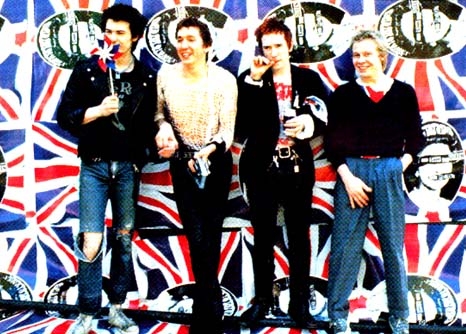
Although short lived, the British band the Sex Pistols remains one of the most exciting and important moments in rock history. The Sex Pistols were active from 1975-1978 and released only one studio album. But the intense quality of the Sex Pistols’ work, both lyrically and musically, has solidified their undeniable importance and influence in music. Paul Cook’s pounding drums, Glen Matlock’s pulsing baseline, Steve Jones’s stinging guitar, “Sid Vicious,” or John Simon Ritchie’s, image, and, perhaps most importantly, John Lydon’s voice and words, continue to excite listeners both musically and intellectually. Their lyrics, public image, and crashing sound defined what we now identify as Punk. Punk, although immediately identified by a certain image and anti-authoritarian attitude, was also an important intellectual force. The Sex Pistols’ brand of Punk influenced young people in ways other popular music did not at the time and, perhaps, does not even do today. The Sex Pistols’ music and lyrics continue to challenge their listeners on topics ranging from the monarchy, to abortion, and global capitalism.
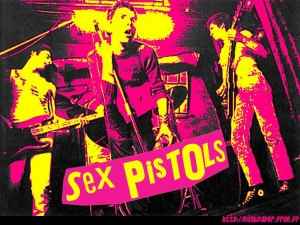
“Holidays in the Sun“ is the exemplary text to begin exploring the richness of the Sex Pistols. This very first song on their only full album Never Mind the Bollocks, Here’s the Sex Pistols is a prime example of why we should consider the Sex Pistols’ music seriously. Rather than seek one coherent argument, we shall explore the varied dimensions of complexity that arise from this text, especially concerning its critique of capitalism.
“Holidays in the Sun” begins with the sound of what appear to be troops marching. Then comes the guitar riff. We are quite aware that this is going to be a crashing anthem. An un-anthem, in a sense. An anthem of protest against the troops marching through our eardrums and marching through the streets of any city, either in the Soviet states or the West. The troops are the troops of thought as well as the pageantry and pomp of the state machinery around Westminster or Berlin; the troops of legal economic constriction– politically sanctioned mind control. Like “God Save the Queen,” this is the anthem for the counter-culture, it is a symbolic gesture of the oppressed masses (as Lydon well knew being born in a working class Irish immigrant family in London).
The events of Lydon’s life as a marginalized citizen in England inform his keen sense of the struggles of the oppressed. Here is a voice for the laboring classes, the anger and frustration pent up and shut down by the mainstream jibber jabber of politicians and phoney propagandistic pop. “Holidays in the Sun” is ambitious in its range of critique and intricacy of argumentation. The voice in Lydon’s lyrics complicates and heightens the intensity of his biting critique of consumer culture. For indeed this is a wonderfully biting critique of capitalism and consumer culture in general.
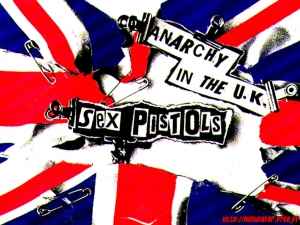
But if this is an anthem for the oppressed, it uses irony as its main weapon. Like many of the other songs on this album, Lydon takes on the voice of the very person he wishes to critique. The personage Lydon takes on in his lyrics is a consumer in Western capitalism visiting Berlin, a citizen who will find interesting and disturbing parallels between his visit and those oppressed by the USSR.
We begin with John Lydon’s opening spoken remark that will ring throughout this argument: “A cheap holiday in other people’s misery.” What a wonderful paradox this is! Each word is deliberate. Now that the speaker has a “reasonable economy” he can derive pleasure on a “cheap” holiday. But this holiday is at the expense of the Other. Just like another song on the album, it seems the speaker has “No Feeling” for “anybody else.” Indeed, the Other, the fellow human being, is a commodity for the speaker, through which he derives pleasure in his relative economic power.
This very “misery” Lydon is getting at is made vivid with the jarring image choice of the “new Belsen” the speaker wants to visit. Belsen was a major concentration camp during World War II. Post-World War II, however, Berlin is the new Belsen Lydon’s vision.
The connections are rich in intellectual weight: Berlin was once the center of Nazi power, and the center of enforcing the brutality of the Holocaust. Now, after the war, Berlin is divided. The wall, especially in this song, seems to be the strange symbolic center separating two regimes which, however, seem to disturbingly share a kind of psychological dictatorial control over their populace. We have to ask, by the end of the song, just how free are we from the influence of governments that claim to have our best interests at heart? The capitalist ideology led the first-person of this song to desire that very thing the Nazi’s (whom the West supposedly defeated) must have desired to some degree: to take a “cheap holiday in other people’s misery;” to use one’s supposed power within society, either economically, racially, or politically, over the Other simply for the pleasure they derive in domination.
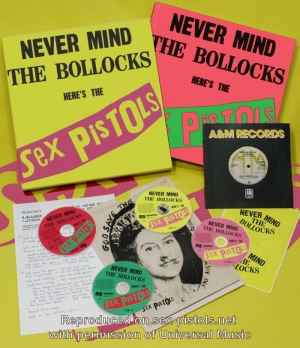
The speaker, however, seems to undergo an epiphany within the song. At one point the speaker could be said to identify with those under the control of the USSR when he states “I’m looking over the wall, and they’re looking at me.” Later this staring seems to get the speaker just as paranoid as those under the USSR’s surveillance must feel as he states: “Well they’re staring all night, and they’re staring all day. I had no reason to be here at all. But now I got a reason, it’s no real reason, to be waiting at the Berlin Wall.” The speaker can’t find a reason for being at the Berlin wall, except the fact that he has (and notice Lydon’s wordplay here) a “reasonable” economy. The capitalist system has so infected this man’s mind that he feels he has a reason to take a holiday in seeing other people’s misery. But does he really “want” that, or is that what the capitalist virus breeds in his brain? It was the capitalist West, after all, that did take many holidays in other people’s misery, colonizing the world around them to fit their ideals. Lydon’s social critique is not merely a museum piece for the Soviet psychosis, but a penetrating analysis of the Western colonizing impulse and its relationship to the economic structure governing the Western mind.
So the Western power and Soviet states, so opposed to each other during the Cold War, share the same paranoia and pleasure in domination. Perhaps differing ideologies on paper, the domination over its citizenry is the same, and both offer “no future,” as Lydon sings in “God Save The Queen,” for punks like the Pistols. This epiphany of the similarity in political repression and indoctrination between the Soviet states and the West rather than what the speaker took to be the superiority of the West is made clear in the paranoid remark: “Claustrophobia, there’s too much paranoia, there’s too many closets so when will they fall?”
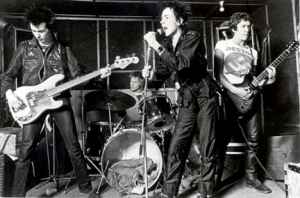
Later in the song the speaker is so distraught with his discovery of capitalism’s insidious power to actually drive him to take a holiday in other people’s misery, that he desires to get over the Berlin wall. This perfectly, and very ironically, plays with the reality of the East Berlin citizen’s desire to jump over the Berlin wall to the West. What would they be jumping into but more repression and psychosis, this song suggests. This desire to jump the speaker honestly “doesn’t understand” at all, and yet he still states: “Gotta go over the Berlin wall.” The only thing to do is jump, even though it will bring no solace, it at least gives the speaker some sense of agency over his free will which, on this trip, he discovered to be coded by capitalism’s darker desires.
In the end, Lydon sings: “Please don’t be waiting for me.” This repeats a major word from the refrain heard throughout the song that the speaker is “waiting” at the Berlin wall. Now the force of this opposition, or perhaps similarity in oppression between the West and the USSR, and the discoveries the speaker has found out from his visit to the new concentration camp of post-World War II Europe, has led to ultimate despair and paranoia. We should not wait for him, for he is now in paralysis; he has reached the epiphany from whence there is no return and no viable political way out.
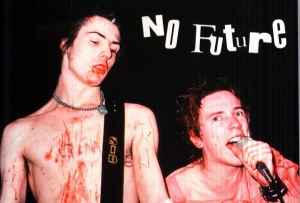
There is much more here to mine, but I’m simply “a lazy sod,” like the Sex Pistols proclaim in “Seventeen,” and don’t feel like mining it all for myself. And that is important to consider, for feelings are just as important in Punk as thinking. In fact, this post did too much thinking for you. To think too much for you would be to rob you of the individual thought only you yourself are capable of nurturing.
The weight of the Sex Pistols’ intellectual force in their lyrics, along with their musical intensity, should be clear by now. If not, then say so. If you disagree, then disagree. But do it with the same courage and passion it takes to write a song like this. Punk, in the hands of the Sex Pistols, is much more than an image. It is a mode of thinking, a mode of critique, and a powerful weapon of the marginalized masses. Indeed, it is an expression and critique of the very power structures we live in, under, and through every day of our lives. They represent a critical and constant expression of distress and rebellion against the powers that can so influence us, despite all our supposed humanity, to take a “cheap holiday in other people’s misery.”
What do you think? Leave a comment.





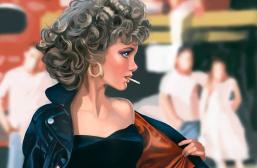





Just started getting into the Sex Pistols and Sid Vicious and they are DAMNNN GOOOOD!!! And this is coming from someone who hates punk rock music!
Then you’ll love the Clash.
I was at some of their early gigs. The sound used to hit you like a truck. Real heavy, very violent, aggressive stuff. Ears rung for days. Just loved it. Rotten’s banter was very sarcastic but he could take it back.
Holidays in the sun was the first punk song I ever liked! And it changed something for me.
I love this piece I may not like all of punk or rap hip hop etc but what I hear and by whom makes the difference this is greeeeeaaaat!
This whole album was a good kick in the bollocks to every rock star on this planet. A powerful revolution.
As fresh and relevant now as the day it was written – simply fucking superb..
http://www.sex-pistols.net (I’m part of the news collaborators team on this worldwide fan favorite Pistols site). Very well written article.As a Pistols raging fan I share your views and opinions about the band.They indeed changed everything and the music and lyrics are often imitated but will never be ematched.Cheers!
Thank you Carlos for your comment. I agree that the Sex Pistols represent an amazing moment in rock and roll history where real issues, real opinions, real emotions, and real intellectual energy all came crashing together. An amazing moment I believe we should treasure and never stop listening to. Great site by the way!
Holidays transports me back to my school days – simply loving it!
this is a classic Albums.
these are the real punks not those leather jacket wearing peps you see today
A totally brilliant rock single, I love it especially from the middle section on – as the intensity starts to build and build. A formative influence on my own recordings and a great video as well, the only minus point being the dubbed cheers tacked onto the final chord – silly!
R.I.P. Sid
Another good, authentic punk track is ‘Lookin’ After Number One’ by the Boom Town Rats… …about the only real Punk track they ever did!! {From a 70s old-timer].
PURE PUNK!
I love the Sex Pistols so reading your article and your analysis on one of their songs was a real treat! Great job!
I never realized the depth of their lyrics before! It’s interesting to consider their lyrics from a politically mindful standpoint. Also, I never realized how similar some of the Sex Pistols’ verse structures are to those of My Chemical Romance. Perhaps they were even an influence. (Sex Pistols influenced MCR, not the other way around haha.)
Punk is what made me realize that the world is run through systems of oppression–although I was too young at the time to articulate exactly what I was feeling. This is the genius of punk, though, that it found a way to articulate those types of feelings without having to be well-educated.
Punk music has always been important to me. I discovered it when I was 13 and am very involved in it to this day. It’s nice to see so many people realizing that punk songs hold value and validity. Punk has something to say and I’m glad people are starting to listen.
Politically incorrect, we need them now more than ever !
Interesting paradox you’ve discovered: the selfish side of the socialist holiday. Not socialist enough I guess.
You have written a complete load of crap.
This short-lived band seems to have a greater cultural impact that has outlived them.